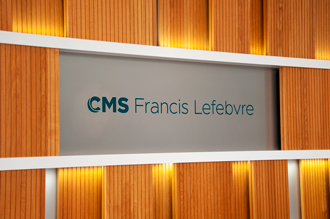
Authors
France has finally adopted a specific legislation to protect trade secrets (Law n°2018-670, July 30th, 2018 and decree n° 2018-1126 dated December 11th, 2018) implementing EU Directive 2016/943. Even if access or disclosure of a third party’s confidential information could already be punished under French law, the reform brings some innovations. Companies should now assess whether their current internal policies are in line with this new regime.
The first innovation brought by the law is the introduction of a definition of trade secrets protected under article L.151-1 of the Commercial Code. To benefit from its protection, three criterions must be met: the information must be secret, have a commercial value, and the business must take reasonable protecting measures. This definition enables the protection, notably, of business information (customer files, prices, market researches), technical information (algorithms, recipes, production processes) or strategic information (business plan, acquisition plan).
During litigation, the plaintiff whose information have been hijacked will have to demonstrate that he had indeed taken concrete protection measures (internal confidentiality rules, restricted access, encryption, awareness campaigns and training of the teams). If it’s not the case, he will not benefit from the protection. The stake is important, and businesses will likely have to change their practices if they wish to benefit from this protection regime.
Another important innovation is the possibility to prosecute, under certain conditions, third parties using other’s confidential information, without having participated in the hijacking of said information. Pursuant to article L.151-5: “(…) placing on the market (…) any product significantly resulting from a breach of trade secret protection will also be considered as an illicit usage when the person whom conducts such activities knew, or ought to know given the circumstances, that this secret was illicitly used”. To prove that the third party knew – or should have known – the fraudulent source of the information, the plaintiff will be able, beforehand, to address to the third party a letter informing him, similarly to what is done in certain cases of patent infringement. On this point, the protection has considerably increased compared to the one offered by the current legislation.
Other main improvement: the law introduces specific procedural rules which allow to keep information confidential during litigation. Specifically, after examining non-contradictorily a confidential document, the judge can chose to limit its communication to a redacted version or limit access to this document to one natural person and one lawyer from each of the parties (which is called a “confidentiality club”). The text also allows closed hearings in the judge’s chambers and relevantly details (L.153-2) that confidential information obtained during a procedure cannot be used by the parties who are subject to a confidentiality obligation which “persists after the end of the procedure”.
The new law shall therefore allow efficient reactions when confidential information is hijacked by a competitor. Is there a risk for this regime to be used to interfere with the work of journalists and whistleblowers? We do not believe so. The authors of the directive, as well as the French legislator, have carefully organized safeguards: article L.151-8 provides that the secret is not opposable if its revelation is within the freedom of speech scope or reveals an illegal activity.
The text also provides that the protection is not meant to be used to restrict the exercise of the rights of workers or workers' representatives to information. However, the French legislator has unfortunately not specified that the protection cannot restrict the use by former employees of “experience and skills honestly acquired in the normal course of their employment”, as provided by the directive.
Undeniably, this new regime is a progress for innovative businesses, even if it has a few weaknesses. It is in businesses’ best interest to verify now their practices, and notably if the “reasonable protection measures” requested by the text have, indeed, been implemented.
More information about our law firm:
Our law firm is a leading international business law firm. Its deep roots, unique positioning and highly recognised expertise enables it to deliver innovative, high value-added solutions in all areas of the law.









